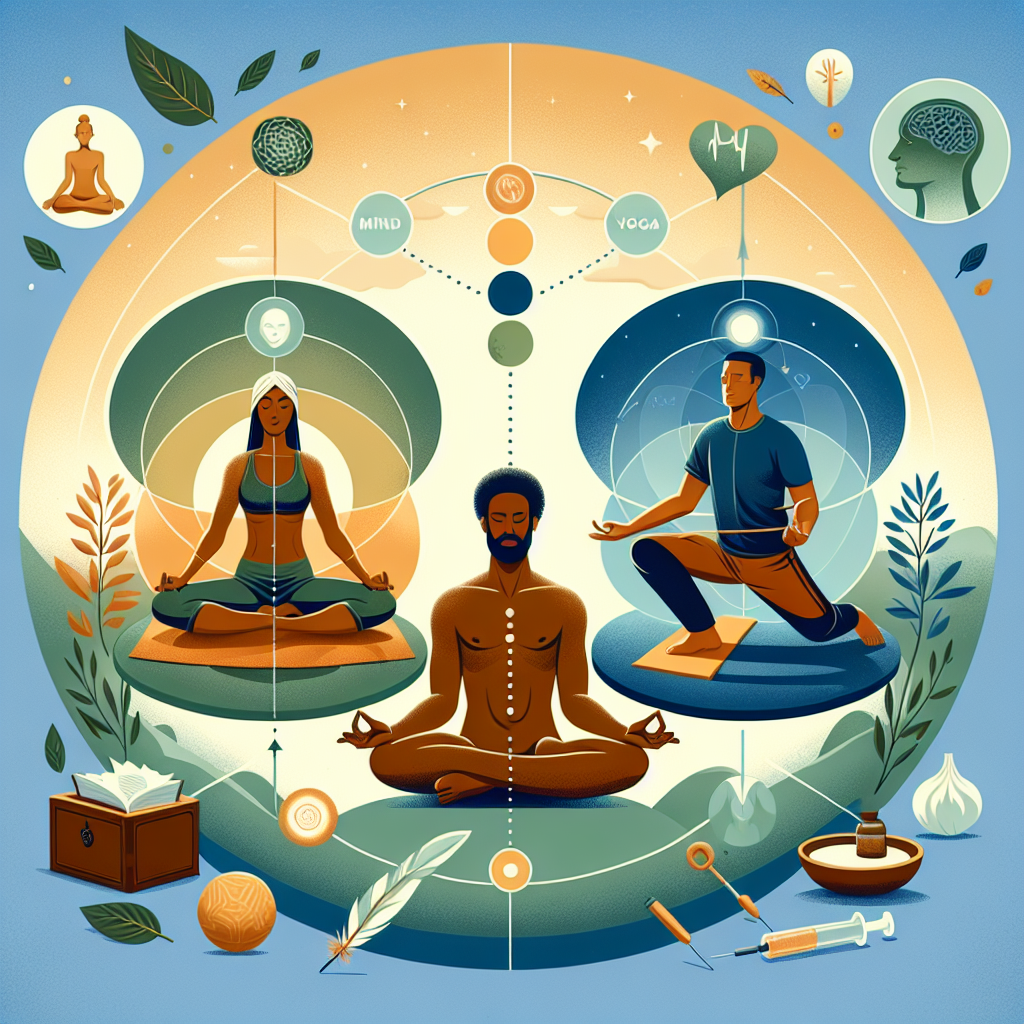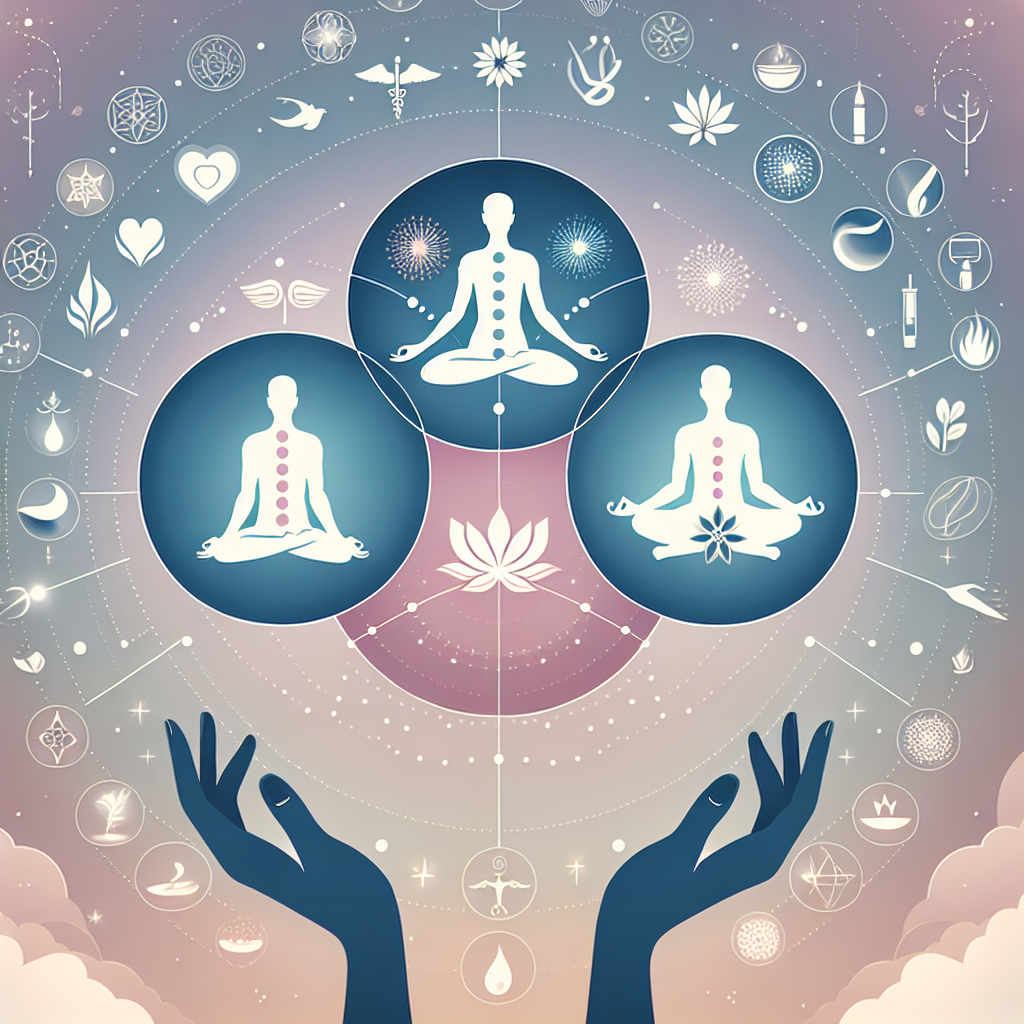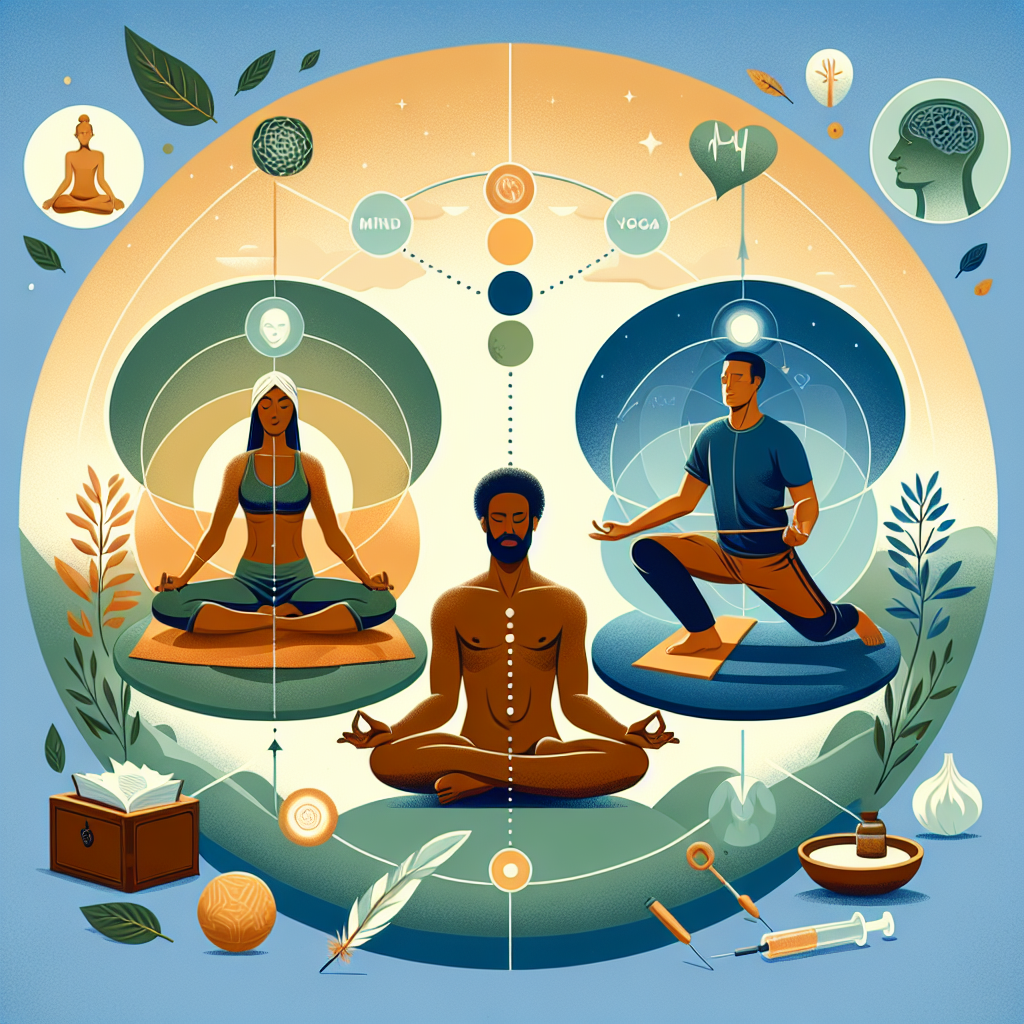Holistic healing is a practice that focuses on treating the whole person, including the mind, body, and spirit. It recognizes that all aspects of our being are interconnected and must be in harmony for optimum health and well-being. Within this context, balance plays a pivotal role in holistic healing. By achieving balance in all areas of our lives, such as our physical health, emotional well-being, and spiritual connection, we can unlock the potential for healing and growth. This article explores the significance of balance in holistic healing and why it is essential for achieving optimal health and a fulfilling life.

What is Holistic Healing?
Holistic healing is an approach to wellness that considers the whole person – mind, body, and spirit – rather than just focusing on treating specific symptoms or diseases. It emphasizes the interconnectedness of different aspects of our being and recognizes that true healing comes from achieving balance in all areas of life. Holistic healing seeks to address the underlying causes of health issues rather than merely alleviating symptoms, and it promotes self-care and self-awareness as fundamental aspects of well-being.
Definition of Holistic Healing
Holistic healing can be defined as a comprehensive and integrative approach to health and wellness that takes into account the physical, emotional, mental, and spiritual aspects of a person. It views the individual as a whole, interrelated system and aims to support the body’s natural ability to heal itself by addressing imbalances and promoting overall harmony and vitality.
Principles of Holistic Healing
The principles of holistic healing are centered around the belief that all aspects of an individual’s being are interconnected and that achieving balance is essential for optimal health and well-being. These principles include treating the root cause of health issues, rather than just the symptoms, promoting self-care and self-awareness, considering all dimensions of a person’s life, and recognizing the importance of a holistic and individualized approach to healing.
Holistic Approach to Healing
A holistic approach to healing entails considering the individual as a whole and focusing on addressing the underlying imbalances in various dimensions of their being. It involves utilizing a range of complementary and alternative therapies, alongside conventional medicine, to support the body’s self-healing mechanisms. Through this approach, individuals are empowered to actively participate in their healing journey and make positive lifestyle changes that support their overall well-being.
Understanding Balance
Meaning of Balance in Holistic Healing
In holistic healing, balance refers to the harmonious integration of all aspects of a person’s being – physical, emotional, mental, and spiritual. It is the state in which each dimension is in optimal equilibrium, allowing for overall health and well-being. Balance is essential for maintaining the body’s natural healing processes and preventing disease. It is about finding the right proportion and alignment in every aspect of life, which enables individuals to experience a sense of wholeness and fulfillment.
Physical Balance
Physical balance in holistic healing refers to the state of well-being and equilibrium in the body’s physical systems. It involves maintaining a healthy lifestyle that includes regular exercise, proper nutrition, good sleep, and overall self-care. Physical balance allows for optimal functioning of bodily processes, strengthens the immune system, and supports the body’s ability to heal itself.
Emotional Balance
Emotional balance refers to the ability to respond to and manage emotions in a healthy and constructive manner. It involves being aware of one’s emotions, expressing them appropriately, and cultivating a positive emotional state. Emotional balance is crucial for overall mental and physical well-being, as unaddressed negative emotions can manifest as physical ailments and lead to imbalances in the body.
Mental Balance
Mental balance involves cultivating a healthy state of mind, free from excessive stress, anxiety, or other mental disturbances. It is about attaining mental clarity, focus, and emotional resilience. Mental balance is vital for overall well-being as it influences our perception of the world, our ability to cope with challenges, and our decision-making processes. By achieving mental balance, individuals can enhance their overall cognitive function and promote a positive outlook on life.
Spiritual Balance
Spiritual balance refers to the alignment and connection with one’s higher self or higher power. It involves cultivating a sense of purpose, meaning, and inner peace. Spiritual balance entails engaging in practices and activities that nourish the soul, such as prayer, meditation, or connection with nature. It provides individuals with a deeper understanding of themselves and their place in the world, offering solace and guidance during challenging times.
The Link between Balance and Holistic Healing
Holistic Perspective on Health
In holistic healing, health is viewed as a state of balance and harmony in all aspects of a person’s being. It is not merely the absence of disease but the presence of optimal well-being. From a holistic perspective, health is a dynamic process that involves addressing imbalances and promoting overall equilibrium in the physical, emotional, mental, and spiritual dimensions of life.
Interconnectedness of Body, Mind, and Spirit
Holistic healing recognizes the interconnectedness of the body, mind, and spirit. It acknowledges that imbalances in one dimension can impact the others and contribute to the development of physical or emotional ailments. Therefore, achieving balance in all dimensions is crucial for overall well-being and optimal health. A holistic approach to healing emphasizes the importance of addressing imbalances in all areas to promote holistic wellness.
Impact of Imbalance on Health
Imbalances in any dimension of our being, whether physical, emotional, mental, or spiritual, can have negative effects on our health and well-being. Physical imbalances can lead to various health conditions, while emotional or mental imbalances can manifest as stress, anxiety, or depression. Spiritual imbalances may result in a sense of disconnection or lack of purpose. The link between balance and holistic healing lies in the recognition that restoring balance in these dimensions is essential for supporting the body’s natural healing processes and achieving optimal health.
Restoring Balance for Healing
Restoring balance in holistic healing involves addressing imbalances in all dimensions of a person’s being. This can be achieved through a combination of therapies and practices that cater to each aspect of life. It may include dietary changes, exercise routines, stress management techniques, emotional release, meditation, or spiritual practices. By restoring balance, individuals can activate their body’s innate healing mechanisms and experience overall well-being.
Physical Balance
Physical Health and Well-being
Physical health and well-being are fundamental components of holistic healing. It encompasses the overall functioning and condition of the body’s systems, including cardiovascular, digestive, immune, and musculoskeletal systems. Physical well-being involves maintaining a healthy weight, having sufficient energy levels, and being free from chronic pain or ailments. It is the foundation for optimal health and plays a crucial role in supporting other dimensions of well-being.
Importance of Exercise and Nutrition
Physical balance relies on regular exercise and proper nutrition. Exercise helps to strengthen the body, improve circulation, increase flexibility, and support overall physical health. It is essential for maintaining a healthy weight, managing stress, and promoting good sleep. Nutrition, on the other hand, provides the body with the necessary nutrients, vitamins, and minerals for optimal functioning. A well-balanced diet supports the body’s immune system, promotes healthy digestion, and nourishes the body’s tissues.
Symptoms of Physical Imbalance
Physical imbalances can manifest in various ways, depending on the individual and their specific health conditions. Common symptoms of physical imbalance may include chronic pain, fatigue, digestive issues, allergies, hormonal imbalances, or frequent illness. These symptoms serve as indicators that the body’s natural equilibrium has been disrupted, and attention must be given to restore physical balance.
Evaluating and Restoring Physical Balance
To evaluate and restore physical balance, it is important to seek guidance from healthcare professionals trained in holistic healing. They will consider various factors, such as the individual’s medical history, lifestyle, and current symptoms, to create an individualized treatment plan. This plan may include dietary changes, personalized exercise routines, stress reduction techniques, or the incorporation of specific complementary therapies to address physical imbalances.

Emotional Balance
Understanding Emotions
Emotional balance entails understanding and acknowledging one’s emotions. It involves being aware of the different emotions experienced and recognizing that emotions are natural and a part of being human. Understanding emotions requires the ability to identify, accept, and express emotions appropriately. It starts with self-awareness and the willingness to explore and process the full range of emotions.
Negative Emotions and their Impact
Negative emotions, such as anger, fear, sadness, or frustration, can have a significant impact on one’s emotional well-being and overall health. When these emotions are suppressed, ignored, or not addressed appropriately, they can lead to emotional imbalances. This imbalance may manifest as chronic stress, anxiety, depression, or other mental and physical health issues.
Emotional Imbalance and Health
Emotional imbalance can negatively affect health and well-being. It can result in physical symptoms, weakened immune function, increased susceptibility to illnesses, and impaired cognitive function. Emotional imbalances can also impact relationships, work performance, and overall quality of life. Recognizing emotional imbalances and addressing them is crucial for promoting emotional well-being and overall holistic healing.
Techniques for Achieving Emotional Balance
There are various techniques and practices that can help individuals achieve emotional balance. These may include mindfulness and meditation for cultivating present-moment awareness, journaling for self-reflection and emotional release, therapy or counseling for processing unresolved emotions, and engaging in activities that bring joy and a sense of fulfillment. By utilizing these techniques, individuals can develop emotional resilience and maintain a healthy emotional state.

